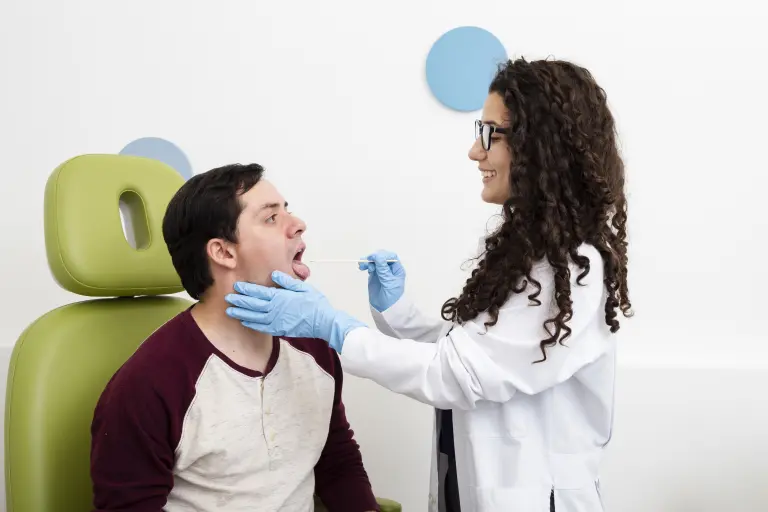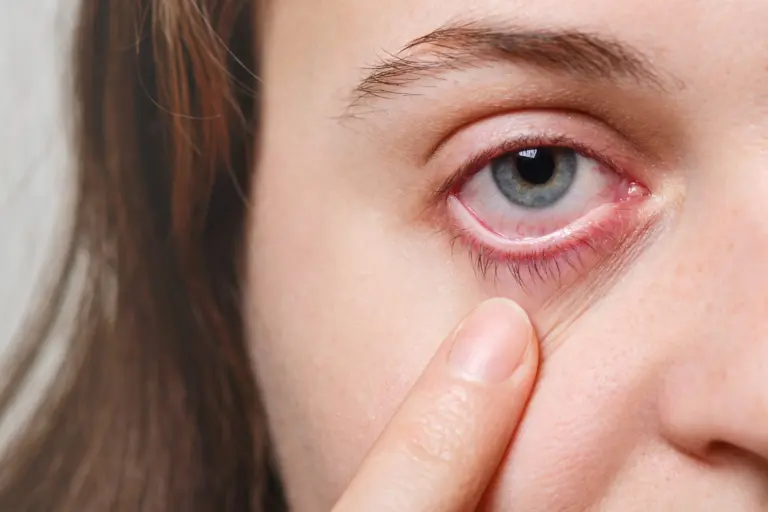Start Your ChatRx Consultation Now and Get The Care You Need Within Minutes.
**Not for emergency use. Care is provided with physician oversight. AI assists clinical workflow only. For concerning or urgent symptoms, call 911.

Respiratory Illnesses
Respiratory diseases, also known as lung diseases, affect the lungs and other parts of the respiratory system. They can be caused by bacterial, viral, or other infectious agents, as well as exposure to irritants like smoke or air pollution. These illnesses can lead to a variety of symptoms, such as coughing, wheezing, difficulty breathing, and chest discomfort. Proper prevention, early detection, and effective treatment are crucial for managing these acute conditions and preventing complications.
Here are the respiratory illnesses ChatRx treats:
Ear, Nose & Throat Infections
Infections affecting the ear, nose, and throat can be caused by bacteria, viruses, or fungi, resulting in symptoms like pain, swelling, discharge, and difficulty swallowing or hearing. The ear, nose, and throat (ENT) region is interconnected, and infections in one area can sometimes spread to others. Prompt diagnosis and appropriate treatment, which may include antibiotics or other medications, are key to managing ear, nose, and throat infections. With proper care and management, many ENT infections can be successfully treated, and patients can return to their normal activities and well-being.
Here are the ENT infections ChatRx treats:


Skin Conditions
Skin conditions are acute illnesses and disorders that can appear on the skin, caused by bacterial, fungal, or viral infections, as well as other underlying factors. Common conditions include rashes, lesions, irritation, and various types of dermatitis. These ailments can present with redness, swelling, itching, scaling, and discoloration. Prompt diagnosis and appropriate treatment, which may involve topical or oral medications, are crucial for managing acute skin conditions and preventing complications.
Here are the skin conditions ChatRx treats:
Mouth Illnesses
Mouth illnesses can be caused by a variety of factors, such as bacterial, viral, or fungal infections, resultinpain, swelling, sores, and other oral discomfort. Prompt diagnosis and treatment, which may involve medications, oral hygiene practices, or dental procedures, are important for managing these illnesses and preventing complications. Seeking timely medical attention for any persistent or concerning oral symptoms can help reduce the risk of complications.
Here are the mouth illnesses ChatRx treats:


Eye Conditions
As a complex and delicate organ, the eye is susceptible to various acute conditions, typically caused by bacterial, viral, or fungal infections, environmental factors, and underlying medical conditions. Common eye conditions include pink eye (conjunctivitis), dry eye, styes, and corneal infections. Eye problems can lead to symptoms such as redness, irritation, pain, sensitivity to light, and vision changes. Prompt diagnosis and appropriate treatment with medications, specialized eye drops, or in some cases, surgical interventions, are crucial for managing eye conditions and preventing potential complications.
Here are the eye conditions ChatRx treats:
Men's & Women's Health
Men’s and women’s health can significantly impact an individual’s well-being and can be influenced by biological, hormonal, and lifestyle factors, requiring comprehensive and tailored approaches to diagnosis and treatment. These conditions can present with pain, swelling, abnormal discharge, and changes in sexual or reproductive function. Prompt medical attention and medications, procedures, or lifestyle modifications, are crucial for managing these acute conditions and preventing complications.
Here are the men’s and women’s health conditions ChatRx treats:


Viral Illnesses
Viral illnesses affect different systems within the body, leading to a wide array of symptoms and potential complications. Viral illnesses can with fever, cough, congestion, body aches, fatigue, and in some cases, gastrointestinal distress. The severity of symptoms can vary, and certain viral infections may pose a greater risk of complications, particularly for vulnerable populations. Preventing viral illnesses involves practicing good hygiene, such as handwashing, covering coughs and sneezes, and avoiding close contact with sick individuals.
Here are the viral illnesses ChatRx treats:
